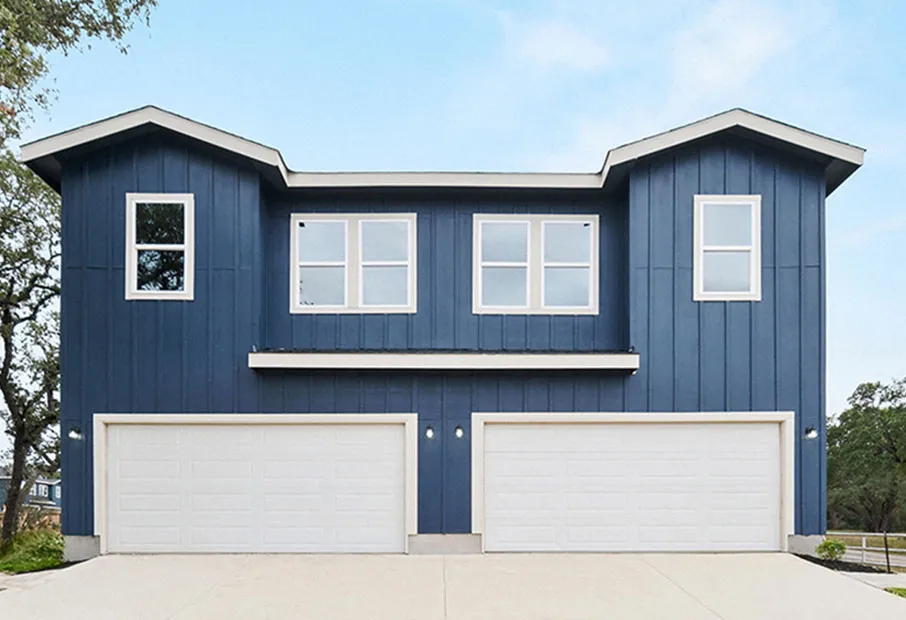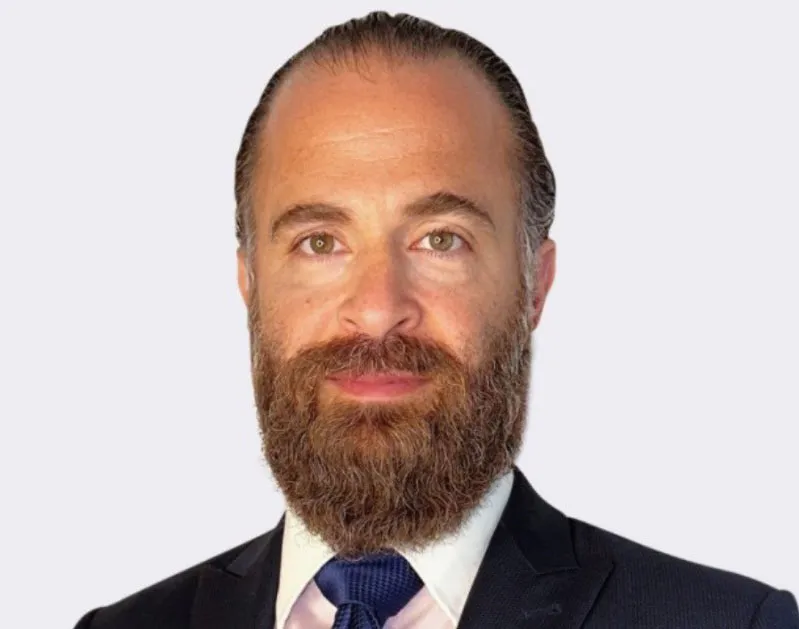Multi Housing News
April 23, 2025
Despite Turmoil, Foreign Buyers Can’t Resist US Multifamily
Some are pausing in light of Trump administration policies and rhetoric, but they'll be back.
Concerns over increasing risk of investing in U.S. real estate has some foreign investors taking a pause. But U.S. property fundamentals are too enticing, especially in the multifamily sector, for them to pull out altogether, experts say.
The results of a recent sentiment survey by the Association of Foreign Investors in Real Estate, which polled representatives from 25 countries and 180 investment organizations globally, indicate that multifamily is the primary holding of 50 percent of respondents and second-largest holding of 23 percent.
Sixty-six percent of respondents agreed that the most important issue in U.S. real estate over the next five years will be housing affordability and availability. And both multifamily and single-family rental investments are forecast to expand.

Canada-based CPI Capital is developing a 7-acre duplex project in northwest San Antonio that features 30 duplex lots for a total of 60 units. Rendering courtesy of CPI Capital
READ ALSO: Top 10 Emerging Multifamily Markets of 2025
About 80 percent of respondents agreed, however, that global political tension and economic realignments are currently the greatest threats to cross-border investment, with 40 percent citing tariffs/trade or geopolitics as having the greatest impact on U.S. real estate investment in 2025, compared to 27 percent who said interest rates or inflation will have the greatest impact this year.
But in spite of 63 percent of respondents expressing a negative outlook for U.S. cross-border investment in 2025, 44 percent of them plan to increase their U.S. real estate investments this year.
Trump’s tariffs and words sting Canadians

The loss of goodwill between Canada and the U.S. is an issue for CPI Capital’s clients, said August Biniaz, co-founder & CIO at the firm.
Currently, though, many foreign investors are holding back new investments to evaluate the changed landscape.
“As a Canadian firm investing in U.S. real estate, we’re seeing firsthand how policy decisions—like tariffs—create ripple effects that go far beyond the intended targets,” said August Biniaz, co-founder & chief investment officer of CPI Capital. “It’s ironic that while the U.S. is trying to strengthen its economy, policies like tariffs might be weakening capital flows from friendly nations like Canada. This is a case where politics and policy aren’t aligned with economic logic.”
But the impact isn’t just financial—it’s emotional and psychological, too, Biniaz suggested. In addition to the tariffs, President Donald Trump’s comments about making Canada the 51st state and other proposals that question Canada’s sovereignty are seen as an affront to investors.
“We’ve seen approximately a 20 percent drop in interest from Canadian investors and (our) numbers,” Biniaz said. “It’s rooted in a shift in sentiment.”
Some reluctant investors explicitly mention nationalism or anti-American sentiment. “For many of our investors, investing in the U.S. suddenly feels like supporting the other side,” Biniaz noted. “And many of our repeat investors have now shied away.“
The fear of returning capital home
Representatives of German investors also report hesitance. Adrian Otto, president of Whitestone Capital, a German investment fund focused on multifamily and a CPI Capital partner, said that, since the Trump Administration began implementing its “America First” policies, he has heard fears over repatriation of capital.
“The concern is a potential for restriction of flows of capital,” he said. “Nothing has been announced in that regard, but a fear of German investors is that there will be potentially a restriction that would hinder the flow of capital back to Europe.”
AFIRE CEO Gunnar Branson agreed that Trump’s policies have “initiated hesitancy and fear of what could happen, and what could happen is alarming.”
Foreign investors are still evaluating the situation, according to Branson, but he agreed that investment funds, particularly those managing retirement or pension funds, are responding on behalf of their clients to the loss of goodwill between the U.S. and fears that Trump-era policies could potentially impact their U.S. investments.
“Investing is not always rational,” Biniaz continued. “When Canadians see headlines about Canada being treated unfairly, or it feels like economic decisions are pushing Canadians—punishing them—they respond emotionally. Tariffs and trade tensions threaten to fray those bridges not only between nations but also between people and opportunities.”
Firms like CPI Capital, act like “cross-border bridges,” Biniaz added: “We’re in the trust business—and these policies erode that trust across borders.”
CPI Capital provides a “registered” investment fund for investing Canadian retirement accounts—like RRSPs, RESPs and TFSA, the equivalent to 401(k) accounts in the United States—in its syndicated, U.S. value-add multifamily U.S. deals. Its investors include individuals, institutional investors and family offices. Its capital stack consists of separate funds for U.S. and Canadian investors, including a master fund for Americans, a Canadian feeder fund that invests in the U.S. fund, and an “evergreen” fund exclusively for Canadians that allows them to pool their retirement accounts to invest in syndicated multifamily deals.
The master fund, which invests in project-specific, syndicated multifamily deals, recently acquired a 136-unit, value-add, multifamily property in St. Petersburg, Fla., called Atlas at Bay Point and is underway on a ground-up duplex project in San Antonio, called Apollo Oaks.

Some investors are worried that capital may not be able to be repatriated, according to Adrian Otto, president of German investment fund Whitestone Capital.
Multifamily fundamentals trump Trump
Despite the recent rancor, both Canadians and Germans are attracted to the U.S. multifamily market’s strong fundamentals—scale, growth, tax efficiency and diversification—and plan to increase their holdings in 2025. “The majority of our LPs continue to prioritize performance and opportunity over politics,” Biniaz said.
According to the AFIRE survey, multifamily and single-family rental portfolios are both forecast to expand this year due to continued demand for housing amid a growing shortage of available units. Sixty-six percent of AFIRE respondents agreed that the most important issue in U.S. real estate over the next five years will be housing affordability and availability.
Both CPI and Whitestone Capital are focused on projects in the U.S. Sun Belt due to high growth rates. “The business model we utilize really works best in the Sun Belt states, particularly Florida and Texas,” Biniaz said. “Florida, this year alone, is expecting to increase its population by 200,000. I was in San Antonio not too long ago, and the amount of public infrastructure going up is just mind-blowing.”

Trump administration policies have “initiated hesitancy and fear of what could happen, and what could happen is alarming,” said AFIRE CEO Gunnar Branson.
When you compare U.S. population growth and yields with Canada, Biniaz said, there’s a lot of enthusiasm for Canadians looking at investing in the U.S. In Canada, multifamily yields are limited by a combination of high labor costs, strict rent control laws and less favorable tax treatments.
“Our company’s mandate is to allow Canadian investors to have exposure to U.S. real estate,” Biniaz added. “In Canada, the cap rates are so compressed, especially in large cities like Toronto, that the multifamily, value-add business model doesn’t really work.”
Financial uncertainty rattles investors
Swings in U.S. Treasury rates since Trump’s tariffs were implemented are also causing financial concerns. “The up-and- down swings on the Treasury makes estimating and underwriting deals difficult because we really don’t know what the cost of our debt’s going to be until we lock our rate, which is usually pretty far down the line into a deal,” Otto said. “That’s really the biggest problem. The uncertainty in the swing we’re seeing in financing and changing viewpoints on retaliatory tariffs.”
Uncertainty around project costs, Biniaz said, makes if difficult to create an accurate budget to secure financing. For example, a 25 percent tariff would add $10,000 in lumber and other materials and costs to each duplex at the Apollo Oaks project.
Silver lining for value-add projects
On the multifamily supply side, however, tariffs can be a positive. If Trump implements tariffs on lumber and other building materials, construction costs will be higher and there will be less new construction and rents will be higher, Otto suggested. Whitestone Capital currently has three active value-add deals in the Sun Belt region.
According to CBRE, this is already happening. A record 450,000 new units were delivered in 2024, but the pace of construction starts has moderated, which will help to balance supply and demand dynamics in the coming years. By mid-2025, multifamily construction starts are expected to be 74 percent below their 2021 peak and 30 percent below their pre-pandemic average. As the construction pipeline shrinks, strong renter demand will lower the vacancy rate and precipitate above-average rent growth in 2026, predicted CBRE’s 2025 Outlook report.
AFIRE, CBRE, CPI Capital, Whitestone Capital


